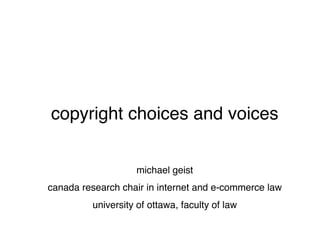Copyright Choices and Voices
•
6 likes•1,239 views
Michael Geist's keynote address on forthcoming Canadian copyright reform to the Canadian Federation of Students Annual Meeting in Gatineau, Quebec in November 2007.
1 of 119
Downloaded 117 times






















































































































